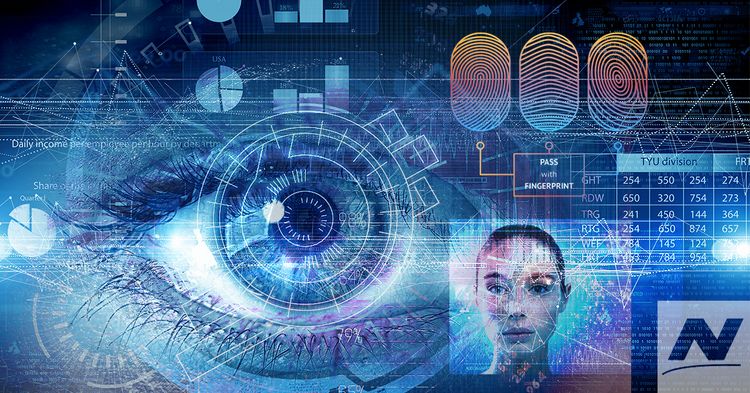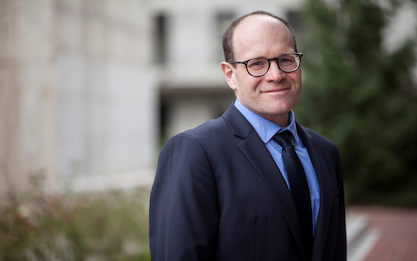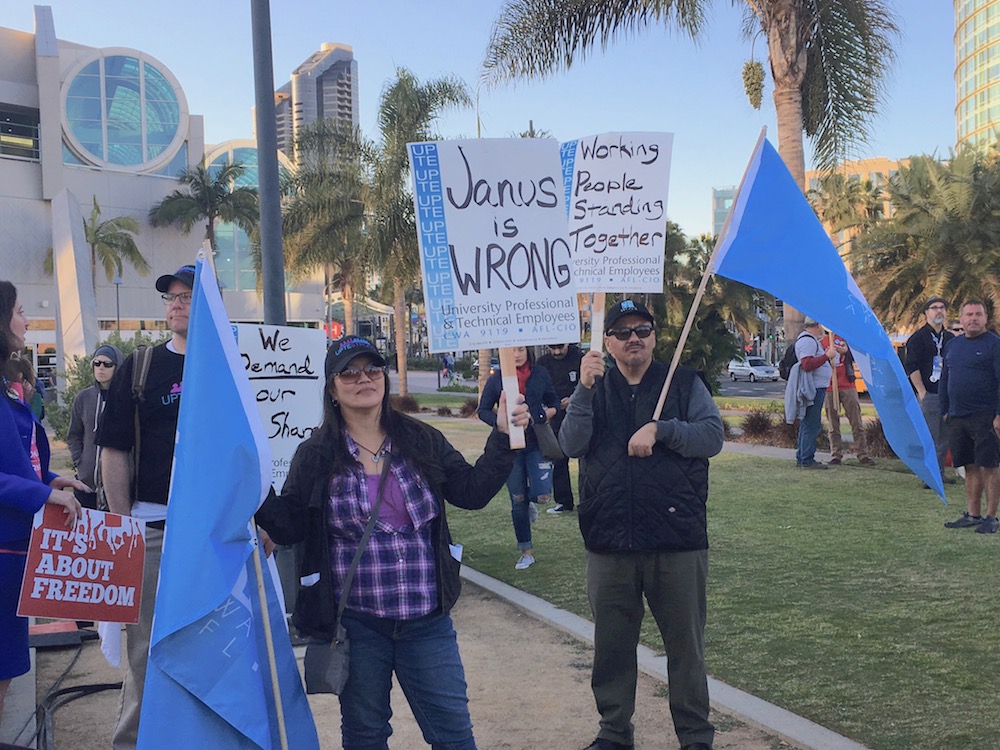Daily Business Report-Feb. 28, 2018
Union members protest the Janus case at the California Democratic Party convention in San Diego. (Photo by Laurel Rosenhall/CALmatters)
Pending U.S. Supreme Court Ruling
Could Slash Power of Public Employee Unions
Unions prepare to lose in the courthouse and strike back in the statehouse
By Laurel Rosenhall | CALmatters
The U.S. Supreme Court has yet to weigh in on a high-profile case that could slash the power of public-employee unions. But California labor leaders are already planning to push for new state laws to blunt the impact of an unfavorable ruling.
The case argued before the court Monday, Janus v. American Federation of State, County and Municipal Employees, challenges whether public-employee unions can collect fees from workers who choose not to join the union. California is one of several states that allow unions to collect so-called “fair share fees” from workers who benefit from services such as contract negotiations but don’t want to pay for their union’s political activity.
Plaintiff Mark Janus, a state child support specialist in Illinois, contends that all union activity is political when the
workers’ boss is the government. He argues that requiring him to pay the fee infringes on his constitutional rights to free speech and association by essentially forcing him to support a group that advocates positions with which he disagrees — in particular, its push for boosting worker salaries in a state facing a budget crisis after reportedly mismanaging its pension program.
AFSCME, the nation’s largest union for government workers, argues that without the fees workers would get a “free ride,” enjoying job protections the union secures without paying the associated cost. In a friend-of-the-court brief on behalf of California, the state’s Democratic Attorney General Xavier Becerra argues that changing the status quo would unnecessarily disrupt California’s dealings with its public-employee unions.
The court is likely to rule this spring, and given its conservative majority, many observers expect the unions to lose. That
would slash the amount of money public-employee unions can collect from their workers — and, over time, could shrink membership. Those changes would shake up politics in California, where organized labor has long enjoyed enormous clout in a state dominated by Democrats. The Janus case is backed by a network of conservative groups whose funders also support Republican candidates.
“The threat to organized labor is a threat to all of us, in particular to the Democratic party,” Alma Hernandez, executive director of the Service Employees International Union in California, said to a roomful of union activists at the California Democratic Party convention. The mood was a mix of doom and defiance. “And make no mistake about it, brothers and sisters, they’re coming after us.”
Predicting they will lose in the courthouse, California union leaders have begun fighting back in the statehouse. Last year, they successfully lobbied for a new state law that requires government workers, upon being hired, to go through an orientation session with union representatives. “That is going to be a great boost to allow us to at least access the people and ask them to join,” said Dave Low, executive director of the California School Employees Association. “Once Janus is decided, and we feel very much that it is going to be decided against us, we will be moving other legislation.”
The legislation is in early conceptual stages and it’s too soon to say whether, if approved, it would cover all unions or just those in the public sector. But union-backed bills under consideration, Low said, include:
- Giving union members “release time” from their jobs so they can recruit other workers to join the union.
- Shielding union members’ contact information from the public to make it harder for anti-union groups to reach them.
- Allowing unions to charge non-members who use services such as arbitration or a labor representative to help them through a disciplinary process.
Taxpayer advocates would likely oppose bills that would shield contact information or give union members release time from work, said Jon Coupal, president of the Howard Jarvis Taxpayers Association. But overall, he said, a court ruling in favor of Janus could relieve some pressure on California taxpayers. “It will perhaps result in our elected officials being able to pursue policies that have more the public in mind, and not just the public employees,” Coupal said. “They will be less likely to cave to public employees in collective bargaining in terms of salary and compensation.”
Labor unions are a major influence in California’s Capitol, spending money to help elect Democrats and then lobbying them to pass new laws. In just the past few years, unions here have successfully advocated for laws granting overtime to farmworkers, making paid sick days mandatory and increasing the state’s minimum wage to $15 an hour.
Labor has shaped many other decisions in the Capitol, from which car companies can get electric-vehicle rebates to how much money school districts can hold in reserves. That kind of influence is costly. Labor unions spent at least $16.3 million lobbying the California Legislature last year and, according to the National Institute on Money in State Politics, more than $123 million on California political campaigns in the last election cycle —money that comes from dues paid by union members. About 2.5 million public-and private-sector workers in California are union members, according to the California Labor Federation, and another 110,000 government workers here pay fair-share fees to unions they choose not to join.
An unfavorable ruling from the Supreme Court could diminish union membership in California by between 5 and 30 percent, depending on what other laws are in place, predicted California Labor Federation spokesman Steve Smith. It’s unlikely to strike an immediate blow to how much unions spend on political campaigns in California this year, he said, though it could have some impact. The real change will be felt over time: If the ruling leads to a decline in membership, unions will have less money to spend on politics. “If we have less money as labor, we’re going to be spending less money on Democratic candidates, we’re going to be spending less money on things like ballot initiatives,” said Jessica Ulstad, political field director for the California Federation of Teachers. “We will all have to look at our budgets and say, ‘What is it that we absolutely are going to spend money on, and what are we not going to be able to do any more?’ ”
CALmatters.org is a nonprofit, nonpartisan media venture explaining California’s policies and politics.
___________________

Governor Appoints 3 Attorneys
to San Diego Superior Court Bench
Three San Diego attorneys — Truc T. Do, Marcella O. McLaughlin and Saba Sheibani — have been appointed to judgeships in the San Diego County Superior Court by Gov. Jerry Brown. The annual compensation for each of the positions is $200,042.
Truc T. Do, 46, has been a partner at Jones Day since 2014. She was a partner at Munger, Tolles and Olson from 2009 to 2014 and served as a deputy district attorney at the Los Angeles County District Attorney’s Office from 1999 to 2009. She earned a Juris Doctor degree from Stanford Law School and a Bachelor of Arts degree from the University of California, Los Angeles. She fills the vacancy created by the retirement of Judge Joel M. Pressman. Do is a Democrat.
Marcella O. McLaughlin, 47, has served as a deputy district attorney at the San Diego County District Attorney’s Office since 2005. She was a deputy city attorney in the San Diego City Attorney’s Office from 1999 to 2004. McLaughlin earned a Juris Doctor degree from the California Western School of Law and a Bachelor of Arts degree from the University of California, San Diego. She fills the vacancy created by the retirement of Judge Edward P. Allard III. McLaughlin is a Democrat.
Saba Sheibani, 39, has been an assistant supervising attorney at the San Diego County Public Defender’s Office since 2016, where she has served as a deputy public defender since 2004. She was a law clerk at the San Mateo Private Defender Program in 2004. Sheibani earned a Juris Doctor degree from the University of California, Hastings College of the Law and a Bachelor of Arts degree from the University of California, Berkeley. She fills the vacancy created by the elevation of Judge William S. Dato to the Court of Appeal. Sheibani is a Democrat.
___________________

Northrop Grumman Wins $95 Million Contract
to Develop Next-Generation ID Services
Northrop Grumman has secured a potential 42-month, $95 million contract to develop a biometric identification platform for the Department of Homeland Security.
The company said it will develop the first and second increments of the Homeland Advanced Recognition Technology and provide systems integration support under the contract with DHS’ office of biometric identity management.
HART is a scalable platform designed to replace the department’s two-decade-old Automated Biometric Identity System, IDENT, and will work to provide multimodal identification processing and matching support through the use of iris, finger and facial biometrics.
When fully implemented, the Northrop Grumman-developed HART will feature multi-modal processing and matching technology that uses a combination of face, finger and iris biometrics meeting DHS accuracy requirements.
Bobby Lentz, vice president of global cyber solutions within the cyber and intelligence mission solutions division at Northrop’s mission systems business, said the HART system will work to help DHS identify adversaries and facilitate data sharing across interagency partners.
___________________

UC San Diego Names Erik Mitchell University Librarian
Erik T. Mitchell has been appointed university librarian at the University of California San Diego effective April 16. Mitchell currently serves as associate university librarian of digital initiatives and collaborative services and associate chief information officer at UC Berkeley.
During his five years at UC Berkeley, Mitchell worked extensively with various leadership teams to advance the mission of the university, drawing on principles of service, shared values and collaboration. He advocated for and led a charge to incorporate preferred name services into the campus’ library systems, worked with vendors and systemwide colleagues to select a digital imaging platform that is ADA compliant and established processes to ensure that all new programs and services include diversity, equity and inclusion considerations at the design and decision-making stages.
Prior to joining UC Berkeley, Mitchell served as an assistant professor and senior research fellow with the Information Policy and Access Center at the University of Maryland, College Park, and as an assistant director for Technology Services at Wake Forest University’s Z. Smith Reynolds Library. Mitchell’s research focuses on the role of information design, technology and literacy in empowering and shaping information communities.
___________________
California Paves Way for Testing
of Driverless Cars on State Roads
The California Department of Motor Vehicles announced that the Office of Administrative Law has approved regulations governing the driverless testing and public use of autonomous vehicles on California roads. Before the approval of these regulations, autonomous vehicles could only be tested in California with an approved driver.
“This is a major step forward for autonomous technology in California,” says DMV Director Jean Shiomoto. “Safety is our top concern and we are ready to begin working with manufacturers that are prepared to test fully driverless vehicles in California.”
This is the second set of regulations for autonomous vehicles in the state of California. These regulations, which become effective on April 2 of this year, establish rules for testing autonomous technology without a driver, and they also establish how manufacturers can allow the public to use self-driving cars.
Under the new regulations, if vehicle manufacturers want to either test an autonomous vehicle without a driver or allow the public to use their autonomous technology, they must acquire a driverless testing and/or a deployment permit from the DMV, and comply with the permit requirements.
___________________
San Diego Foundation Awards $632,934
in Grants for 10 Science and Technology Program
The San Diego Foundation announced $632,934 in grants for 10 programs that strengthen San Diego’s innovation economy by creating more opportunities for students, particularly from underserved communities, pursuing STEM (science, technology, engineering and mathematics) opportunities. .
The grants were awarded to:
- San Diego Mesa College
STEM Conexiones Community Scholars Program — $75,000
- Miramar College Foundation
SCE Project — $75,000
- Research for Autism and Development Lab at UC San Diego
RADLab Program — $75,000
- California State University San Marcos Foundation
STEM Summer Scholars Program — $74,813
- The Maritime Alliance Foundation
BlueSTEM Pathway — $70,000
- Access Inc.
GET Tech Program — $65,828
- UC San Diego Foundation
PATHways to STEM Through Enhanced Access and Mentorship (PATHS) — $62,000
- Wintriss Technical Schools (The League of Amazing Programmers)
Tech Workforce Program — $61,191
- Elementary Institute of Science
Girls Take Flight — $54,102
- Ocean Discovery Institute
Ocean Leaders Program — $20,000




